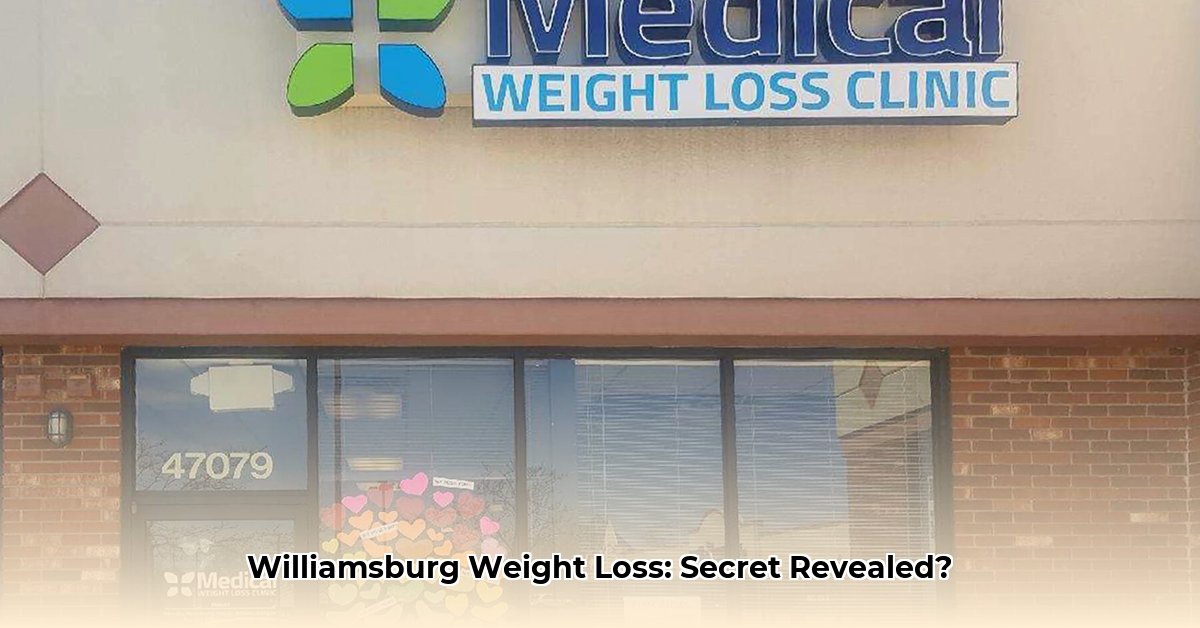
Thinking about using Hampton Roads Weight Loss (HRWL) in Williamsburg, VA, to achieve your weight loss goals? This review examines HRWL's program, analyzing the available evidence and offering guidance to help you make an informed decision. We'll explore its claims, address potential concerns, and provide actionable steps to consider before committing.
Understanding the HRWL Approach
HRWL's program centers around "metabolic adjustments," aiming to alter your body's processes to increase calorie and fat burning. It features personalized plans, a positive aspect, tailored to individual needs. However, a key component of the program involves proprietary supplements, which lack full transparency regarding their ingredients and potential long-term effects. The program's emphasis on metabolic changes, rather than solely diet and exercise, is a notable feature. However, the absence of extensive exercise raises questions regarding the long-term sustainability of weight loss achieved through this method.
Evaluating the Evidence: Testimonials and Transparency
Online testimonials highlight clients' significant weight loss, improved energy, and increased confidence. While these personal accounts are compelling, it's crucial to acknowledge the lack of independent verification. The absence of robust, peer-reviewed studies limits the ability to objectively confirm these positive outcomes. This lack of independent scientific validation is a significant concern. The program's reliance on proprietary supplements further complicates evaluation, as the precise ingredients and their potential impacts remain undisclosed, raising concerns about safety and the potential for unknown interactions with other medications.
Long-Term Sustainability: A Critical Consideration
Sustainable weight loss necessitates a long-term strategy encompassing lifestyle changes and ongoing support. The available information does not provide a comprehensive overview of HRWL's post-program support. The absence of a clear plan raises concerns regarding the potential for weight regain after the initial phase of the program is concluded. Is a weight loss plan sustainable if it doesn't address the long-term strategies required to maintain results?
Key Questions to Ask Before Enrollment
Before engaging with HRWL or any weight-loss program, it's essential to ask critical questions:
- Supplement Composition: What are the specific ingredients in the supplements, and are there potential side effects or interactions with medications I'm currently taking? This information is essential for safety and informed decision-making.
- Long-Term Weight Management: What support and strategies are provided after the initial program concludes to maintain weight loss? A robust and sustainable plan is critical for achieving long-term success.
- Independent Verification: Are there any published, independent studies verifying the program's effectiveness and safety? Independent validation significantly enhances the credibility of a weight-loss program.
- Program Cost and Structure: What is the overall cost of the program, and what are the specifics of the payment plan or structure? This ensures you understand the financial commitment before beginning.
- Client Success Rates: What evidence is there to support claims of successful weight loss? Quantifiable success rates, supported by data, provide a clearer picture of the program's overall effectiveness.
Recommendations for HRWL to Enhance Credibility
To build trust and improve transparency, HRWL should consider these steps:
- Conduct Independent Clinical Trials: Rigorous, independent clinical trials are essential to validate the program's claims scientifically. This objective evaluation significantly enhances credibility.
- Full Ingredient Disclosure: Complete and transparent disclosure of all supplement ingredients is crucial for safety and informed consent. This includes potential side effects and known interactions.
- Robust Post-Program Support: A comprehensive post-program support system, including nutritional guidance, behavioral modification strategies, and ongoing community support, is essential for long-term success. This demonstrates a commitment to sustainable weight management.
Conclusion: Informed Decision-Making
While personal accounts suggest potential short-term benefits with HRWL’s program, the lack of transparency, independent verification, and long-term support raise significant concerns. Make your decision based on a careful evaluation of the available evidence and a thorough understanding of the potential benefits and risks. Consult a healthcare professional before starting any weight-loss program to ensure it aligns with your individual needs and health condition. Remember, sustainable weight loss is a journey requiring a holistic approach, considering diet, exercise, and ongoing lifestyle changes.